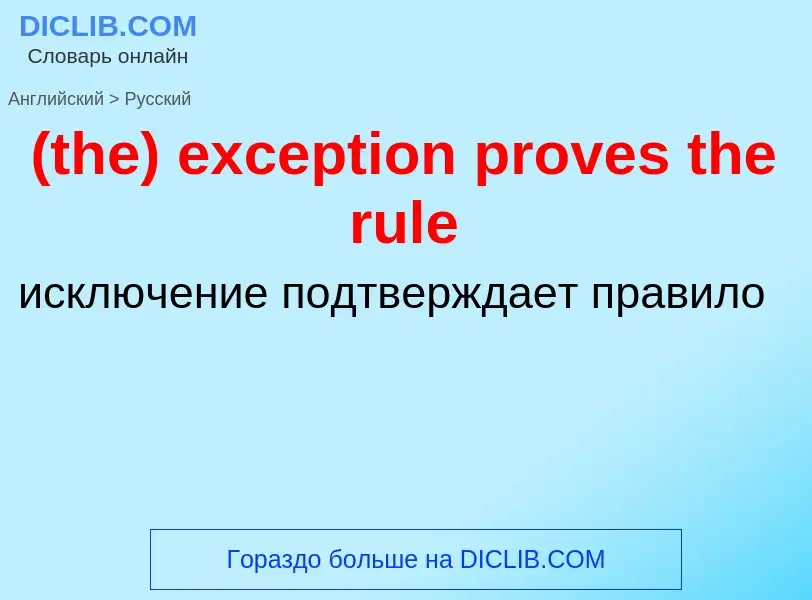Vertaling en analyse van woorden door kunstmatige intelligentie ChatGPT
Op deze pagina kunt u een gedetailleerde analyse krijgen van een woord of zin, geproduceerd met behulp van de beste kunstmatige intelligentietechnologie tot nu toe:
- hoe het woord wordt gebruikt
- gebruiksfrequentie
- het wordt vaker gebruikt in mondelinge of schriftelijke toespraken
- opties voor woordvertaling
- Gebruiksvoorbeelden (meerdere zinnen met vertaling)
- etymologie
(the) exception proves the rule - vertaling naar russisch
Definitie
Wikipedia
"The exception that proves the rule" is a saying whose meaning is contested. Henry Watson Fowler's Modern English Usage identifies five ways in which the phrase has been used, and each use makes some sort of reference to the role that a particular case or event takes in relation to a more general rule.
Two original meanings of the phrase are usually cited. The first, preferred by Fowler, is that the presence of an exception applying to a specific case establishes ("proves") that a general rule exists. A more explicit phrasing might be "the exception that proves the existence of the rule". Most contemporary uses of the phrase emerge from this origin, although often in a way which is closer to the idea that all rules have their exceptions. The alternative origin given is that the word "prove" is used in the archaic sense of "test". In this sense, the phrase does not mean that an exception demonstrates a rule to be true or to exist, but that it tests the rule, thereby proving its value. There is little evidence of the phrase being used in this second way.

